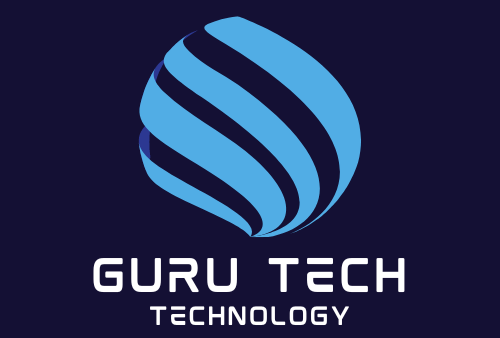Unlocking Potential with Marketing Cloud Software: Transforming Business Strategies
Introduction
In today’s digital age, businesses across industries are increasingly leveraging marketing cloud software to enhance their marketing efforts, engage customers more effectively, and drive business growth. This comprehensive guide explores the capabilities, benefits, and strategic implications of marketing cloud software. It delves into how organizations can unlock their potential by harnessing these advanced tools to create personalized customer experiences, streamline operations, and achieve marketing objectives.
Understanding Marketing Cloud Software
Marketing cloud software refers to a suite of digital marketing tools and technologies designed to automate, optimize, and analyze marketing efforts across multiple channels and platforms. These integrated platforms typically include capabilities for email marketing, social media management, customer segmentation, campaign management, analytics, and more. By centralizing these functions into a single platform, marketing cloud software enables businesses to orchestrate cohesive marketing campaigns, track performance metrics in real-time, and gain actionable insights into customer behavior.
Key Features and Capabilities
- Multi-channel Campaign Management: Marketing cloud software allows businesses to create, manage, and optimize marketing campaigns across various channels such as email, social media, mobile, and web. Integrated campaign management tools streamline workflows, facilitate collaboration among marketing teams, and ensure consistent messaging across touchpoints.
- Customer Data Management: Central to marketing cloud software is the ability to collect, store, and analyze customer data from multiple sources. Advanced data management capabilities enable businesses to create unified customer profiles, segment audiences based on demographics and behaviors, and deliver personalized marketing content tailored to individual preferences.
- Automation and Personalization: Automation features within marketing cloud software automate repetitive tasks such as email sends, social media posts, and lead nurturing workflows. Personalization algorithms utilize customer data to deliver relevant content, recommendations, and offers in real-time, enhancing customer engagement and satisfaction.
- Analytics and Insights: Robust analytics tools provide actionable insights into campaign performance, customer interactions, conversion rates, and return on investment (ROI). Real-time reporting dashboards and customizable analytics empower marketers to optimize strategies, allocate budgets effectively, and drive continuous improvement.
- Integration with CRM Systems: Many marketing cloud platforms integrate seamlessly with Customer Relationship Management (CRM) systems, enabling a unified view of customer interactions and sales pipeline. This integration facilitates closed-loop marketing, where marketing efforts are aligned with sales goals and customer lifecycle stages.
Benefits of Marketing Cloud Software
- Enhanced Customer Engagement: By delivering personalized, relevant content to customers based on their preferences and behaviors, marketing cloud software enhances engagement levels. Automated campaigns ensure timely communication and nurture leads throughout the customer journey, fostering stronger relationships and brand loyalty.
- Improved Marketing Efficiency: Automation of marketing processes reduces manual workload, minimizes errors, and increases operational efficiency. Marketers can focus more on strategic activities such as campaign planning, creative development, and data analysis, leading to higher productivity and better resource allocation.
- Scalability and Flexibility: Marketing cloud software is scalable to accommodate business growth and adaptable to evolving marketing needs. Whether expanding into new markets, launching product lines, or targeting different customer segments, these platforms offer flexibility in scaling campaigns and adjusting strategies in real-time.
- Data-Driven Decision Making: Access to comprehensive analytics and real-time performance metrics empowers marketers to make informed decisions. By understanding which campaigns drive the highest ROI, which channels resonate with target audiences, and which segments require further nurturing, businesses can optimize marketing spend and maximize results.
- Competitive Advantage: Organizations that effectively leverage marketing cloud software gain a competitive edge by delivering superior customer experiences, driving revenue growth, and maintaining agility in an increasingly competitive landscape. The ability to innovate rapidly and adapt to market changes positions businesses for long-term success.
Strategic Implementation Considerations
- Aligning Business Objectives: Define clear business objectives and KPIs that align with marketing goals. Whether increasing brand awareness, generating leads, or improving customer retention, marketing cloud software should support strategic priorities and contribute to overall business growth.
- Integration with Existing Systems: Assess compatibility and integration capabilities with existing IT infrastructure, CRM systems, and marketing technology stack. Seamless integration ensures data consistency, enhances operational efficiency, and facilitates a holistic view of customer interactions.
- Training and Skill Development: Invest in training programs to upskill marketing teams and leverage the full potential of marketing cloud software. Training should focus on platform functionalities, best practices in automation and personalization, and interpreting analytics for actionable insights.
- Compliance and Data Security: Ensure compliance with data protection regulations such as GDPR or CCPA when handling customer data within marketing cloud platforms. Implement robust security measures to safeguard sensitive information and maintain customer trust.
- Continuous Optimization and Innovation: Adopt a culture of continuous improvement by testing, analyzing, and optimizing marketing campaigns based on performance data. Embrace platform updates, new features, and emerging trends in digital marketing to stay ahead of competitors and meet evolving customer expectations.
Case Studies and Success Stories
- Company A: Scaling Customer Engagement: By implementing marketing cloud software, Company A enhanced customer engagement through personalized email campaigns and targeted social media ads. Real-time analytics enabled them to adjust strategies based on customer response, resulting in a 20% increase in conversion rates.
- Company B: Streamlining Operations: Company B streamlined marketing operations by automating lead nurturing workflows and integrating CRM data with their marketing cloud platform. This integration improved lead quality and shortened sales cycles, contributing to a 15% reduction in customer acquisition costs.
- Company C: Driving ROI with Analytics: Leveraging advanced analytics within their marketing cloud software, Company C optimized ad spend across digital channels and identified high-value customer segments. Data-driven insights led to a 25% increase in marketing ROI and strengthened brand loyalty among key demographics.
Future Trends and Innovations
- AI and Machine Learning: Integration of AI-powered algorithms for predictive analytics, customer segmentation, and content personalization.
- Voice Search Optimization: Optimizing marketing strategies for voice-enabled devices and virtual assistants.
- Blockchain Technology: Enhancing transparency and security in customer data management and digital advertising.
- Omni-channel Integration: Seamless integration across offline and online channels for unified customer experiences.
- Sustainability Initiatives: Incorporating sustainable marketing practices and eco-friendly campaigns.
Conclusion
Marketing cloud software represents a transformative tool for businesses seeking to unlock their potential in digital marketing and customer engagement. By harnessing the capabilities of these advanced platforms—such as automation, personalization, analytics, and integration—organizations can drive meaningful connections with customers, optimize marketing performance, and achieve strategic objectives. As technology continues to evolve and consumer expectations shift, embracing marketing cloud software enables businesses to stay agile, innovative, and competitive in an increasingly dynamic marketplace.
This guide provides a comprehensive overview of marketing cloud software, emphasizing its transformative impact on business strategies, customer engagement, and operational efficiency.

